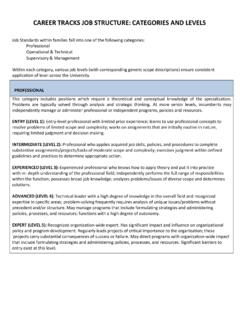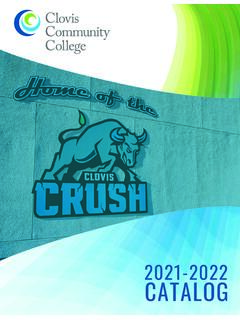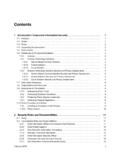Transcription of Texas Core Competencies for Early Childhood Practitioners ...
1 Texas Core Competencies for Early Childhood Practitioners and AdministratorsThe Texas Core Competencies for Early Childhood Practitioners and Administrators were developed through a collaboration between the Texas Early Learning Council and the Texas Head Start State Collaboration Office, both housed at the Children s Learning Institute at The University of Texas Health Science Center at March 2013 Table of ContentsIntroduction 2 Acknowledgements 4 Overview 5 Using This Document 7
2 Core Competencies for Practitioners 10 Core Competency Area 1: Child Growth and Development 16 Core Competency Area 2: Responsive Interactions and Guidance 22 Core Competency Area 3: Learning Environments, Planning Framework, Curriculum, and Standards 28 Core Competency Area 4: Supporting Skill Development 31 Core Competency Area 5: Observation and Assessment 43 Core Competency Area 6: Diversity and Dual Language Learners 47 Core Competency Area 7: Family and Community Relationships 50 Core Competency Area 8: Health, Safety, and Nutrition 54 Core Competency Area 9: Professionalism and Ethics 59 Core Competencies for Administrators 64 Core Competency Area 1: Establishing and Maintaining an Effective Organization 69 Core Competency Area 2.
3 Business and Operations Management 72 Core Competency Area 3: Human Resource Leadership and Development 76 Core Competency Area 4: Maintaining a Healthy and Safe Environment 80 Core Competency Area 5: Implementing a Developmentally Appropriate Curriculum and Environment 84 Core Competency Area 6: Instituting Family and Community-Centered Programming 89 Professional Development Resources 91 Glossary 92 References 95 Texas Core Competenciesfor Early ChildhoodPractitioners and
4 Administrators2 Texas Core Competencies for Early Childhood Practitioners and AdministratorsIntroductionThe Texas Early Learning Council (TELC) and the Texas Head Start State Collaboration Office (THSSCO) collaborated to bring these Core Competencies to Texas . THSSCO houses the Texas Early Childhood Professional Development System (TECPDS), which was created to ensure that high quality professional development opportunities are available statewide to individuals working in Early care and education. Since the Early 1990s, TECPDS has included Core Knowledge Areas for Practitioners , administrators, and trainers in its menu of services offered to the state.
5 These statements have guided the training and professional development of thousands of Early care and education professionals in Texas , but they were in need of 2009, Governor Rick Perry appointed members to the Texas Early Learning Council, a federally-mandated council charged with improving school readiness in the state. In October 2010, the federal government made funds available to the Council to make improvements to the state s Early Childhood system, including major investments in the professional development system as part of the Council s improvement plan. A critical piece of the investment in our professional development system was to build on the Core Knowledge Areas, and produce new, detailed, voluntary Core Competencies for all Early Childhood professionals in the state.
6 TELC and THSSCO staff worked for over a year researching, drafting, and vetting these Core Competencies . Critical assistance was also provided by the Children s Learning Institute (CLI), as April Crawford, , a CLI researcher, served as the primary author of the Core Competencies . Dr. Crawford began the process by reviewing the preferences and notes of the TELC and the TECPDS Council. She then examined many existing state examples throughout the nation, consulted dozens of policy briefs, and reviewed the existing research literature on the subject. Her first drafts were reviewed by the TELC and TECPDS Council, as well as the TELC and THSSCO staff.
7 The outcome of this iterative and stakeholder-driven process is Core Competencies for Early Childhood Practitioners and Administrators that are informed by research, as well as by a diverse group of Practitioners and stakeholders. The Core Competencies are important to the Early Childhood field of practice. Demonstrating ability and excellence in any profession requires the mastery of different 3 Texas Core Competencies for Early Childhood Practitioners and Administratorscompetencies related to the job. For example, doctors must demonstrate their ability to diagnose and treat patients for all types of conditions, cashiers must demonstrate their skills in operating technology and interacting with customers, and computer programmers must demonstrate their knowledge of various programming languages and techniques.
8 Early Childhood professionals are no different; there are concepts, practices, and knowledge they must know and be able to demonstrate in order to be be clear, core Competencies are defined as an individual s demonstrated skills and abilities. This document lists observable Competencies that, when accomplished, demonstrate competency in a particular area of knowledge. This document covers core Competencies for Early Childhood Practitioners and Core Competencies for Early Childhood Practitioners and AdministratorsAcknowledgementsThe efforts of many individuals contributed to the creation of this Adams, Texas Department of Family and Protective ServicesLaShonda Y.
9 Brown, Texas Head Start State Collaboration OfficeElsa Cardenas-Hagan, University of HoustonJudy Carnahan-Webb, Creative Trainers and ConsultantsAaron Carrara, Metropolitan Montessori SchoolsKatie Chennisi, Texas Head Start State Collaboration Office, Texas Early Childhood Professional Development SystemApril Crawford, Children s Learning InstituteDeborah Cody, Mount Pleasant Independent School DistrictSonya Coffey, Children s Learning InstituteSarah Crockett, Texas Association for Infant Mental HealthRegan Dobbs, Texas Workforce CommissionAna De Hoyos O Connor, San Antonio CollegeFrank Eckles, CYC Certification InstituteBlanca Enriquez, Education Service Center - Region 19 Head Start John W.
10 Gasko, Children s Learning InstituteSue Hancock, Independent ConsultantTere Holmes, Children s Learning AdventureJennifer Lindley, Texas Early Learning CouncilRhonda Paver, Stepping Stone SchoolLee Roberts, Texas Department of Family and Protective ServicesElaine Shiver, Mental Health America of TexasDebbie Simpson-Smith, San Jacinto CollegeJackie Taylor, Texas Association for the Education of Young ChildrenDon Titcombe, Texas Early Learning CouncilKim Wedel, Texas Department of Assistive and Rehabilitative ServicesJudy Willgren, National Association of Child Care Resource and Referral Agencies5 OverviewStudies of Early learning programs have repeatedly demonstrated that Early Childhood classroom experiences can improve young children s academic and social skills trajectories upon school entry with many effects sustained through adolescence (Duncan, et al.)






